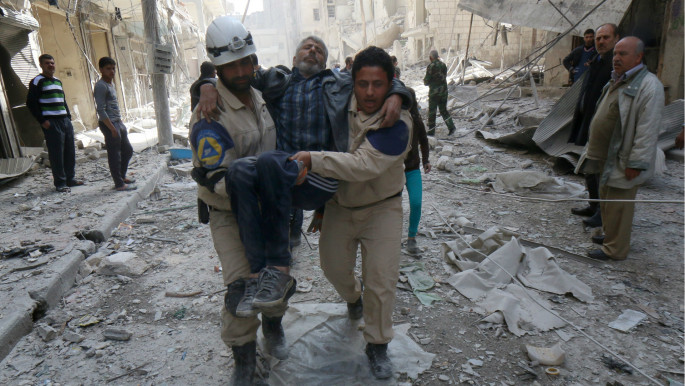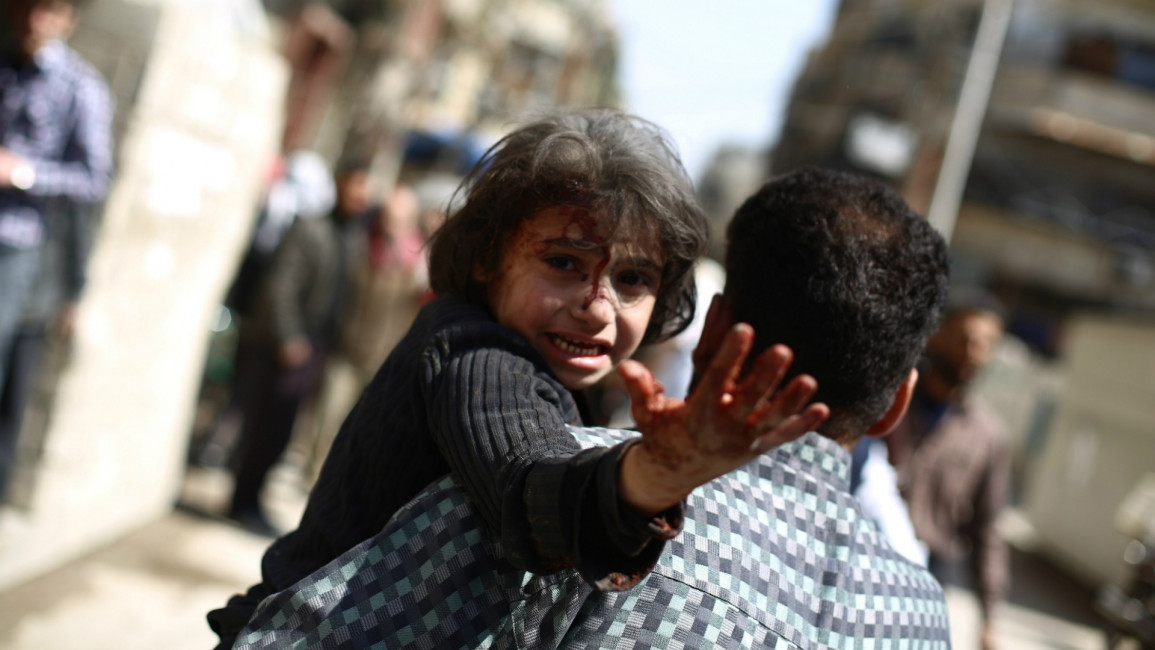Syrian regime 'deliberately blocking civilian aid'
The Syrian government has been accused of deliberately obstructing the delivery of international aid to its civilians, in a damning statement by the UN's top humanitarian relief official.
Valerie Amos urged the UN Security Council to take "concrete steps" to get aid to millions of Syrian, saying "restrictive administrative hurdles" meant agencies had visited only three of 33 requested sites this year.
Syria's government now asks for lists of beneficiaries, insisting that all communication should go through the foreign ministry, before aid can be delivered.
In the past month, the number of Syrians living in "besieged areas" has risen from 212,000 to 440,000 with an increased risk of death by starvation, dehydration and lack of medical care.
About 12 million people in Syria are in need of aid, according to UN estimates.
"At a time when needs are growing, and the humanitarian community should be scaling up its response, the government continues to put in place measures that are not practical and slow down our response," Amos said in her brief to the security council.
Amos also expressed concern about the fate of the northern city of Idlib, where a consortium of rebels launched an offensive earlier this week.
 |
|
| Aid was allowed into only three of 33 requested sites [AFP] |
The increased violence there "has the potential to displace hundreds of thousands more people," Amos said, calling for residents to be given safe passage to leave if needed.
A number of humanitarian offices have also closed in areas controlled by the Islamic State group, Amos said. As a result the World Food Programme had to halt distribution in February to 700,000 people in areas of Aleppo, Hasakeh, Deir ez-Zor and Raqqa.
"Time is running out. More people will die," Amos said.
She also called on the divided council to show "greater determination" to push for a political solution to end the war.
The life expectancy of a Syrian is now estimated to 20 years less than when the conflict started and nearly two thirds of all Syrians are living in extreme poverty.
The health system in Syria has been destroyed and only half of the health centres which existed before the conflict are still working.
Physicians for Human Rights has documented 233 attacks on 183 medical facilities, with 610 medical staff killed over the last four years.
 |
|
| Many hospitals have been destroyed in fighting [AFP] |
Ahmad Dobbis, a doctor and coordinator for the Directorate of Health for Hama, which provides medical care in rebel controlled areas, told al-Araby al-Jadeed of the plight of health services in his region.
"We currently work from a building in Kafr Zita, a town in northern Syria, that has been targeted several times by helicopters and planes. There is only one floor remaining where we can work: the basement. The town's other hospital was destroyed by a barrel bomb."
Taher Wazzaz, a doctor and coordinator of the Civil Defence teams in Idlib, told al-Araby that his team was overwhelmed.
"There are 80 of us in total. Our work involves picking up the wounded, primarily civilians. When there is an attack, people call us for help or if we already know what's going on, we go to the location ourselves. We have cars to locate and pick up the wounded. Sometimes we need to search for people in the rubble."
"A market in Saraqib, east of Idlib, was hit by artillery fire several days ago. It was horrible," Wazzaz added. "There were more than 13 dead and 10 people seriously wounded who all required amputations.
Amos, the UN humanitarian chief, told the security council that children in particular had been badly affected by the war, with 5.6 million now in need of assistance.
 |
|
| Millions of children are suffering in Syria, Amos said [AFP] |
In the governorates of Hama, Aleppo and Deir-ez-Zor, more than 10 percent of children are suffering from acute malnutrition.
The UN is seeking $8.4bn to meet the humanitarian needs of the Syrian conflict in 2015, with a pledging conference set to be held in Kuwait on 31 March.
Less than 10 percent of the required money has been raised, forcing aid agencies to cut food rations by 30 percent.
The UN's World Food Programme ran out of money for its Syrian efforts late last year, forcing it to temporarily suspend aid until emergency funding was found.



